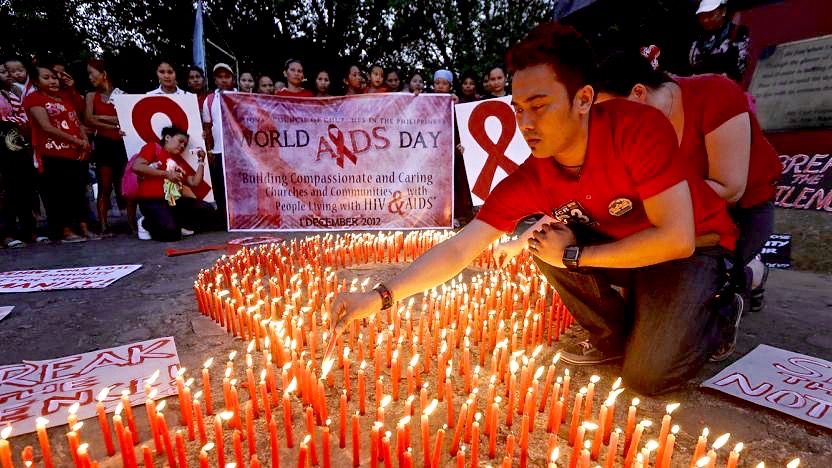Bucking the Trend
"That's the perfect formula for S.T.I.s [sexually transmitted infections], including H.I.V."
"The youth explore [sex], but do it without the proper education."
Chris Lagman, official, Love Yourself, Manila, Philippines
"The Philippines has the fastest growing H.I.V. infection rate in Asia, along with Afghanistan."
"Right now, the Philippines runs the risk of letting the infection get out of control."
"All good and successful national AIDs programs use condoms."
Steven Kraus, director, Unaids, United Nations H.I.V/AIDS Agency
"Reducing HIV transmission isn't rocket science. But it does require the ... government to implement an HIV prevention program and remove obstacles to condom and HIV testing access so that young Filipinos - particularly men who have sex with men - can protect themselves from an otherwise preventable illness."
Carlos Conde, Philippines researcher, Human Rights Watch.
"Nationwide, there are testing centers and hygiene clinics that offer free HIV testing services and ensure the confidentiality of the results. Knowing one’s status will help an individual get early treatment and care."
"Information dissemination is the key to conveying the correct message to everyone that HIV is preventable and that anybody can acquire the virus."
"HIV is a virus that destroys the human body’s natural defense against diseases or infection, causing the immune system to weaken and not function properly. No human being, by age or by sex, is immune to HIV infection."
Juan Antonio Perez III, executive director, Commission on Population, Philippines
 |
| World AIDS Day Commemorated in Manila – AP / Bullit Marquez |
In much of today's world, the soaring incidence of H.I.V. and AIDS has been more or less tamed. Education on sexual hygiene and self-protection has gone far in diminishing the incidence and impact of that dread disease. The need for a life-saving protocol accelerated once it became clear that AIDS was afflicting not only the vulnerable victims practising unprotected sex in the gay community, but heterosexuals as well. The realization that women were giving birth to babies infected with H.I.V. struck the conscience of the world.
And at a time when aggressive awareness and prevention campaigns have succeeded in leading to a global decline in infection rates where in Asia rates of infection decreased by five percent, in Southeast Asia by 30 percent, in the Philippines the trend has gone the other way. Among gay men in the Philippines the infection rate has literally exploded, as it did in the early days of AIDS surging through the gay community of the United States.
For those most at risk, gay men, injecting drug users, transgender women and female prostitutes, the rise has been alarming, with the rate of new infections having increased by 230 percent between 2011 and 2015. Yet among Filipinos between the ages of 15 and 24, a mere 17 percent fully comprehend exactly what H.I.V. is, and how it spreads. The Health Department had developed a plan to distribute condoms in public high schools as a preventive, linked to education.
But the Department of Education refused, even though teachers would have been trained how best to counsel students on the prevention of pregnancies and the transmission of sexual infections. With that refusal went the voluntary H.I.V. testing, and a further plan to educate parents on how to discuss sex with their children. A coalition of parents, the Roman Catholic Church (of which 80 percent of Filipinos are devout members) and conservative politicians all resisted the effort at education and prevention.
"The Department of Health and the Department of Education should concentrate on uplifting the values of the Filipino youth", urged Senator Vicente Sotto II, arguing that distributing condoms on school premises would result in promiscuity, pointing out that public health centers and stores are where condoms were already available. However, Filipinos under the age of 18 require parental consent to buy condoms or to be tested for H.I.V.
The country relies on the use of antiretroviral therapy to diminish opportunities of passing H.I.V. on to others, along with testing drives, as the national strategy to halt the spread of the virus. In the meanwhile, awareness of prevention and actual testing are both random and infrequent.
Labels: Crisis Management, Education, HIV/AIDS, Philippines

0 Comments:
Post a Comment
<< Home